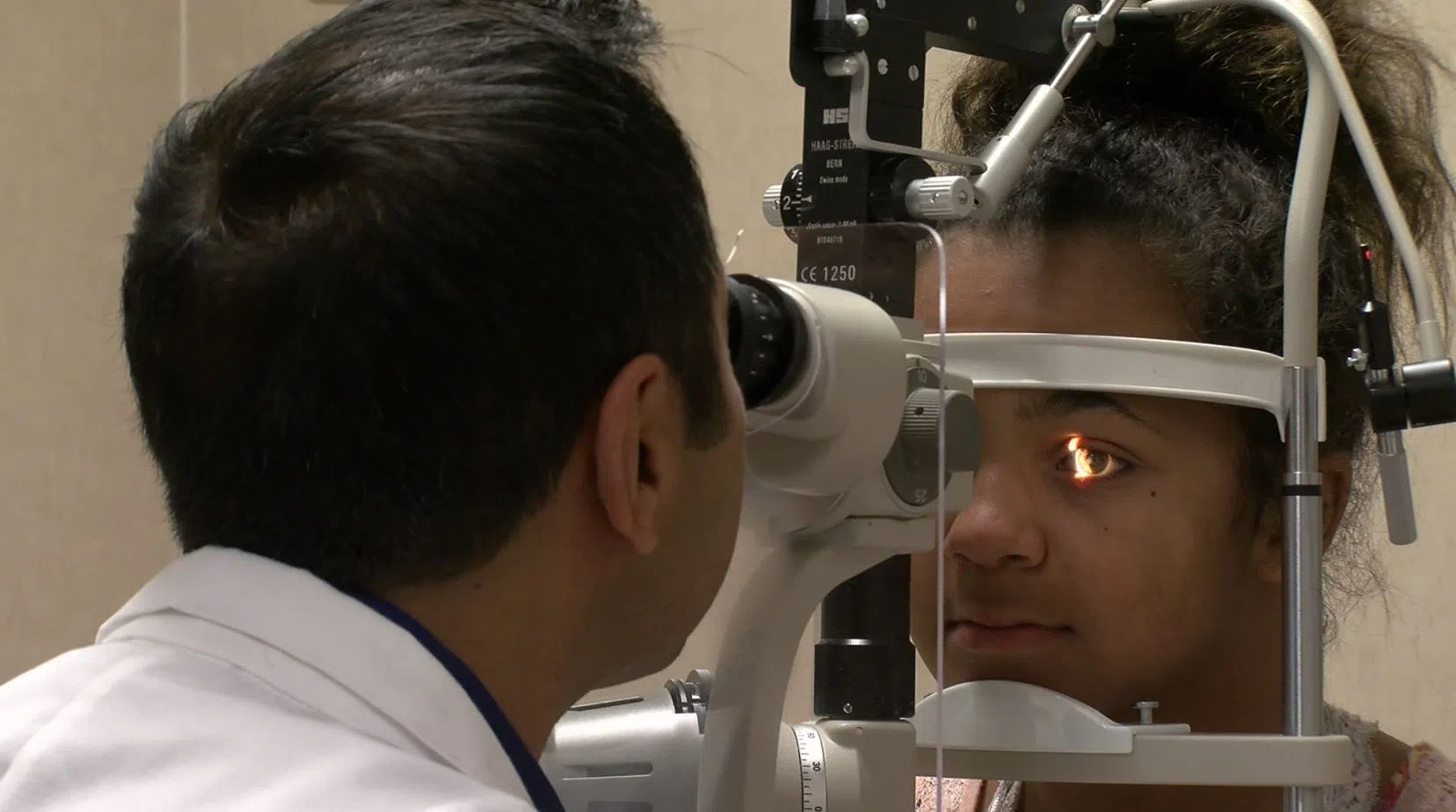
Digital eye strain a growing concern as kids head back to school
MEDICINE HAT, AB — A new study suggests kids in elementary school spend more than four hours a day using digital devices at school and at home. Teens are staring at screens for nearly eight hours a day.
Technology is all around us and it’s hard on our eyes, but a local optometrist said there are a few things you can do to help prevent digital eye strain.
It’s a message Mikayla Moore, 13, is taking with her when she starts Grade 9 in a few weeks.
